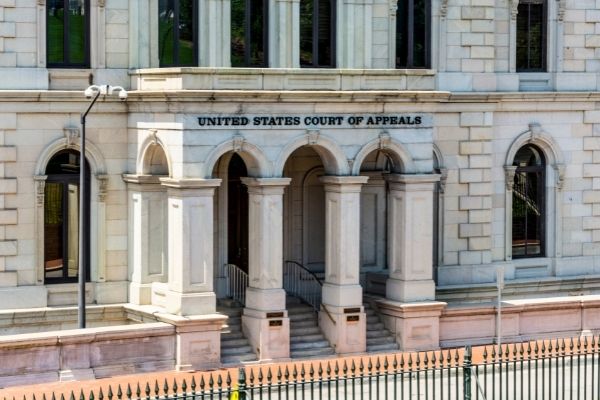Demystifying the Refine of Federal Appeals: What You Required to Know
Browsing the detailed realm of federal charms can commonly feel like traversing uncharted waters for those unfamiliar with the process. Comprehending the subtleties of appellate court jurisdiction, the ins and outs of submitting a notification of allure, presenting a compelling brief, and making a persuasive oral argument are important elements that can substantially affect the end result of an instance. By unraveling the layers of complexity bordering government allures, people can get a more clear understanding into the systems that regulate this critical point of the legal system.
Comprehending Federal Appeals Process
Exploring the detailed world of the federal appeals process unveils a organized and systematic journey through the judicial system. Federal allures act as a vital system for examining decisions made by lower courts. Recognizing this procedure is important for anybody involved in lawful process at the federal level.
The process typically starts with a party disappointed with a reduced court's judgment filing a notification of charm. This sets off a review by a greater court, where a panel of courts examines the legal debates provided by both parties. Briefs outlining the lawful reasoning behind each event's placement are sent, and oral arguments may be heard to make clear complicated issues.
The appellate court's choice is based on a detailed exam of the reduced court's procedures and the arguments provided. Once the appellate court gets to a choice, it can verify, reverse, remand, or modify the reduced court's judgment, offering clarity and finality to the lawful disagreement.
Appellate Court Territory Described
Appellate court jurisdiction refers to the range of cases that a specific appellate court has the power to choose and assess upon. Unlike trial courts that hear situations for the first time, appellate courts are restricted to reviewing choices made by lower courts.
Appellate courts have territory over specific sorts of situations, normally those involving lawful mistakes, procedural concerns, or questions of legislation instead than factual conflicts. The territory of appellate courts is generally described in laws and laws that regulate the court system. Recognizing appellate court jurisdiction is important for events involved in the charms procedure as it figures out whether a situation is qualified for testimonial and the extent to which the appellate court can intervene in the lower court's choice.
Declaring a Notice of Appeal
The preliminary action in beginning the government allures procedure involves filing a Notice of Charm with the proper appellate court. This critical document formally informs the court and the various other events associated with the case that the appealing party intends to seek a review of the lower court's decision. Submitting a Notice of Charm is a stringent step-by-step demand that establishes the appellate procedure in activity.
When preparing the Notification of Charm, it is necessary to make sure compliance with the certain guidelines and guidelines of the appropriate appellate court. federal crime lawyer. The paper must generally include information such as the case name, the reduced court's name, the day of the judgment being appealed, and a succinct declaration showing the premises for the appeal

Briefing and Dental Disagreement
In the appellate process, offering written briefs and involving in oral disagreements play crucial functions in supporting for the appealing party's position before the appellate court. Briefs are thorough legal papers that lay out the parties' debates, legal authorities, and evaluation supporting their placements. These written entries supply the court with a detailed understanding of the truths of the situation, the pertinent law, and why the appealing celebration thinks the reduced court's decision ought to be reversed.
Complying with the submission and evaluation of the briefs, dental debates offer the celebrations his explanation a chance to more clarify their positions, deal with any type of concerns the appellate courts might have, and highlight vital points from their written briefs. Oral disagreements are a possibility for the lawyers to encourage the courts via spoken campaigning for and feedbacks to queries from the bench.
Both the composed briefs and dental debates are critical elements of the appellate procedure, permitting events to offer their instance extensively and compellingly prior to the appellate court. - federal crime lawyer
Getting the Appellate Court Decision
The appellate court's choice is typically provided in a created layout and lays out the court's conclusions on the lawful issues provided, the thinking behind their decision, and the judgment made. The time structure for receiving the appellate court's choice can differ, but courts strive to provide timely resolutions. Whether the appellate court attests, reverses, or remands the lower court's decision, recognizing the implications of the judgment is crucial for all celebrations entailed in the appellate procedure.
Verdict
Understanding the appellate court jurisdiction, submitting a notice of charm, preparing briefs, and providing dental disagreements are all crucial elements of this process. Ultimately, receiving the appellate court decision can provide clarity and resolution to legal conflicts.
As we proceed from recognizing the government charms process to exploring the intricacies of appellate court jurisdiction, a basic facet comes to light pertaining to the authority and restrictions of these higher courts in the legal landscape. Appellate court jurisdiction refers to the range of situations that a particular appellate court has the power to review and decide upon. Unlike test courts that hear situations for the first time, appellate courts are restricted to assessing decisions made by lower courts. Understanding appellate court territory is important for celebrations entailed in the allures process as it identifies whether a case is qualified for testimonial and the extent to which the appellate court can interfere in the lower court's decision.

Comments on “Why Pick Federal Appeal Lawyers: Proven Strategies for Successful Appeals”